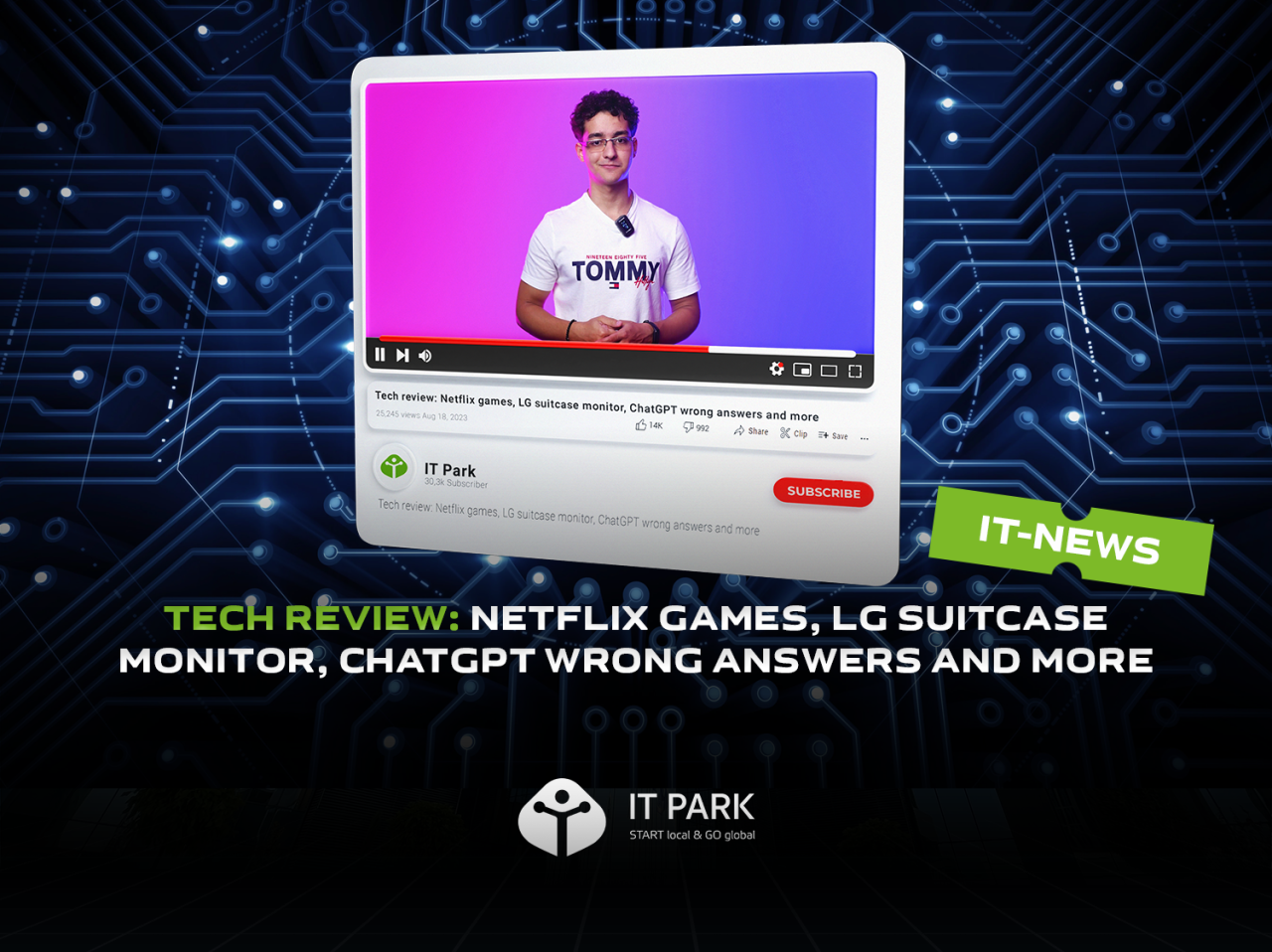
Tech review: Netflix games, LG suitcase monitor, ChatGPT wrong answers and more
Continuing to share with you the latest news from the world of technology in our weekly column. In this edition, we discuss the new developments from Netflix, the cost of the most convenient TV monitor in the world, improvements to the “Memories” feature by Google Photos, the superiority of bots over humans, and whether one should trust artificial intelligence.
Netflix is testing game streaming on smart TVs, Mac, and PC
Starting from August 14th, Netflix subscribers in Canada and the United Kingdom have the opportunity to test cloud game streaming on their TVs. This feature will be available for PC and Mac users in the future.
The initial games available to users are Oxenfree and Molehewʼs Mining Adventure. Instead of a joystick, smartphones can be used for control. Android device owners can manage games through the Netflix app, while iOS users can use the Netflix Game Controller. On PC and Mac, mouse and keyboard controls will be supported.
LG has introduced a wireless touch TV monitor in suitcase for $1,000
The 27-inch LG StanbyME Go can be conveniently carried around, as it fits comfortably within a suitcase-like casing. The monitor operates on the webOS operating system, enabling YouTube viewing, internet-surfing, and gaming.
The monitor supports features like Apple AirPlay, screen duplication, voice control, as well as Miracast and Chromecast for smartphone content casting. Additionally, it features Bluetooth and Wi-Fi for wireless connectivity. With a built-in battery, the monitor can be used for up to three hours without electricity.
Bots have learned to pass CAPTCHA better than humans
A group of researchers from various universities and Microsoft conducted a study on how people behave when undergoing different types of CAPTCHA tests. They asked 1,400 individuals to complete 14,000 tests.
Comparing the results of humans and bots, researchers discovered that bots performed the task much more effectively. For example, to decipher distorted text, humans took 9 to 15 seconds and answered correctly only 50-84% of the time. Bots completed the same tasks in less than a second with an accuracy rate of 99.8%.
Google Photos update enhances the “Memories” feature using AI
Now, the memories galleries will become more personalized: the algorithm will not only curate suitable photos but also generate interesting captions for them.
Additionally, “Memories“ will allow users to add music to galleries, share them, and collaboratively edit albums.
Soon, collections can be saved in popular formats for sharing via messengers and social networks.
ChatGPT provides incorrect answers to programming questions in over half of the cases
Researchers from Purdue University in the USA conducted an analysis of ChatGPTʼs answers, evaluating their accuracy, logic, completeness, and style.
Results revealed that 52% of ChatGPTʼs answers were incorrect, and 77% of them were overly detailed. Nevertheless, users continue to choose ChatGPTʼs responses in 39.34% of cases due to their comprehensiveness and clearly formulated language style.
OpenAI acknowledges that its software may contain inaccurate information about people, places, and facts. Users mostly notice obvious errors in the chatbotʼs responses. In instances where errors cannot be instantly verified or require additional efforts or documentation, users are more inclined to trust artificial intelligence.
2023-08-18